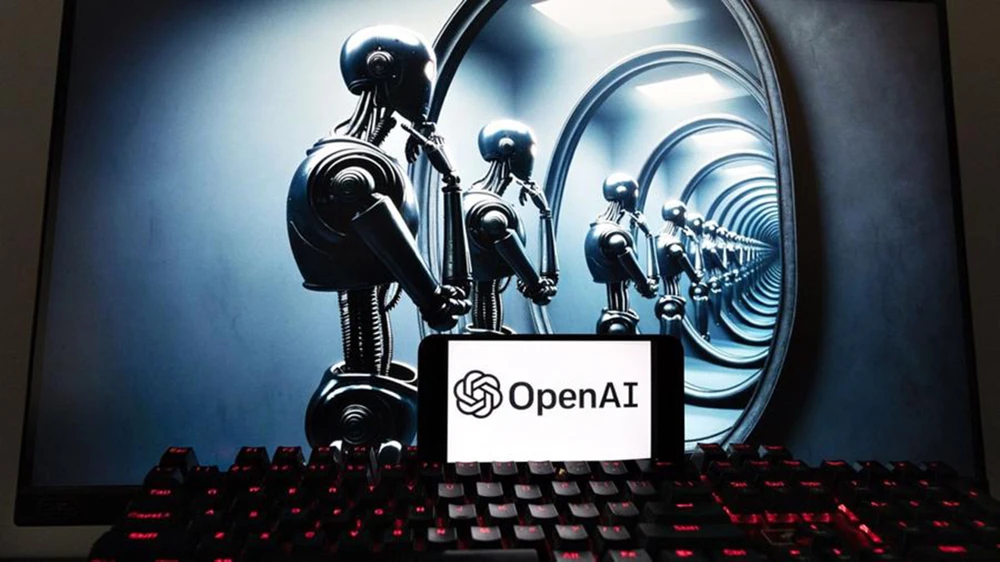On January 26, the US Federal Trade Commission (FTC) announced that it is monitoring investments by large technology corporations such as Microsoft, Google and Amazon in artificial intelligence (AI) startups OpenAI and Anthropic.

Prevent dirty competition
This is part of the US regulatory agency's efforts to ensure regulations keep pace with the development of AI, preventing large technology corporations from engaging in unfair competition and squeezing out rivals in a field that promises to change a lot in the future. Specifically, the FTC will conduct research to gain a deeper understanding of market trends and business practices, and then base its conclusions on legal action.
The head of the committee, Ms. Lina Khan, affirmed that the study will further clarify the nature of investments and cooperation, as well as the risk of unfair competition in the field of generative AI.
Meanwhile, Microsoft Vice President Rima Alaily said that she will provide all the information requested by the FTC, while emphasizing that cooperation between independent companies like Microsoft and OpenAI is the driving force for competition and innovation.
For its part, Google hopes the FTC will find companies with hostile approaches to AI.
Anthropic and Amazon declined to comment on the FTC’s decision. Amazon, Microsoft, and Google are the world’s largest providers of cloud computing data centers, which store and process large-scale data. In recent times, these three “giants” have increased their investment in generative AI technology. Among them is Microsoft’s $13 billion investment in OpenAI, the company that created the ChatGPT chatbot.
Last year, Amazon and Google also invested $4 billion and $2 billion respectively in Anthropic - a company considered a rival of OpenAI and with great potential for future growth.
Prevent secret acquisition
Earlier this month, the European Commission (EC) also conducted a preliminary review of Microsoft’s investments in OpenAI to rule out the possibility of it secretly acquiring and merging smaller companies. The examination of Microsoft’s investment in OpenAI is largely a competition policy approach, to determine whether Microsoft’s massive bet is so large that it effectively amounts to an acquisition and gives the multinational company control of the startup.
As the main enforcer of competition rules, the EC has the power to monitor, approve and, if necessary, eliminate business concentrations that could harm economic relations across the market. If Microsoft's investment falls under the European Union's (EU) Merger Regulation, the tech giant would have to formally notify the regulator. The investigation would apply retroactively as the investment is already underway and could lead to remedial measures.
The EU’s move reflects concerns about unfair competition and potential market distortions arising from Microsoft’s extensive integration of OpenAI products into its core businesses. The EU’s review follows a UK investigation into whether the balance of power between Microsoft and OpenAI has shifted, potentially giving one party more control or influence over the other.
VIET ANH
Source


![[Photo] General Secretary To Lam, Secretary of the Central Military Commission attends the 12th Party Congress of the Army](https://vphoto.vietnam.vn/thumb/1200x675/vietnam/resource/IMAGE/2025/9/30/9b63aaa37ddb472ead84e3870a8ae825)
![[Photo] The 1st Congress of Phu Tho Provincial Party Committee, term 2025-2030](https://vphoto.vietnam.vn/thumb/1200x675/vietnam/resource/IMAGE/2025/9/30/1507da06216649bba8a1ce6251816820)
![[Photo] President Luong Cuong receives President of the Cuban National Assembly Esteban Lazo Hernandez](https://vphoto.vietnam.vn/thumb/1200x675/vietnam/resource/IMAGE/2025/9/30/4d38932911c24f6ea1936252bd5427fa)

![[Photo] Panorama of the cable-stayed bridge, the final bottleneck of the Ben Luc-Long Thanh expressway](https://vphoto.vietnam.vn/thumb/1200x675/vietnam/resource/IMAGE/2025/9/30/391fdf21025541d6b2f092e49a17243f)
![[Photo] Solemn opening of the 12th Military Party Congress for the 2025-2030 term](https://vphoto.vietnam.vn/thumb/1200x675/vietnam/resource/IMAGE/2025/9/30/2cd383b3130d41a1a4b5ace0d5eb989d)































































































Comment (0)